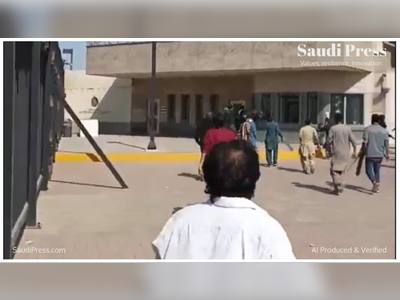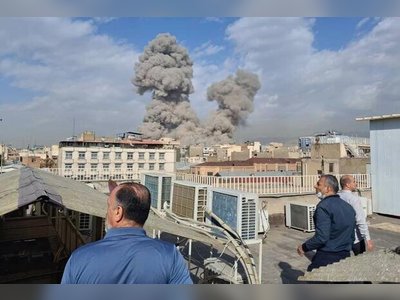Global Military Shifts, Gender Inequality, and Economic Alliances: Key Developments in the Post-Assad Era
The Fall of Assad: Unveiling Global Power Shifts and Regional Challenges
The recent fall of Bashar al-Assad's regime in Syria has exposed the limitations of Russia's global military influence, particularly as it maintains its focus on the conflict in Ukraine, highlighting a stark contrast to the success of its 2015 intervention that propped up Assad.
Meanwhile, in Afghanistan, the Taliban's increasing restrictions on female education, exemplified by the ban on women in medical training, mark a distressing continuation of gender-based marginalization, posing significant challenges for young women like Saja and Assal, who see their dreams of contributing to healthcare dashed.
In response to ongoing military pressures, Ukrainian President Volodymyr Zelensky is boldly shifting focus towards expanding drone technology, as this strategic investment aims to enhance Ukraine’s military capabilities amid the prolonged conflict.
On the economic front, the Saudi-UK Business Roundtable 2024 signifies a strengthening of economic partnerships and sustainable development efforts, aligning with Saudi Arabia's Vision 2030 and marking a milestone in diversifying economic interests beyond oil between the UK and Saudi Arabia.
Syria now faces a pivotal moment following Assad's departure, as the nation embarks on the challenging journey of governance and reconciliation after decades of authoritarian rule and a civil war that has forever altered the Middle Eastern geopolitical landscape.
Finally, the chilling discovery of approximately 40 tortured bodies near Damascus underscores Syria's enduring legacy of repression; a stark revelation that adds urgency to the pursuit of justice in the aftermath of Assad's ousting, revealing the dark shadows of his regime's past.
Meanwhile, in Afghanistan, the Taliban's increasing restrictions on female education, exemplified by the ban on women in medical training, mark a distressing continuation of gender-based marginalization, posing significant challenges for young women like Saja and Assal, who see their dreams of contributing to healthcare dashed.
In response to ongoing military pressures, Ukrainian President Volodymyr Zelensky is boldly shifting focus towards expanding drone technology, as this strategic investment aims to enhance Ukraine’s military capabilities amid the prolonged conflict.
On the economic front, the Saudi-UK Business Roundtable 2024 signifies a strengthening of economic partnerships and sustainable development efforts, aligning with Saudi Arabia's Vision 2030 and marking a milestone in diversifying economic interests beyond oil between the UK and Saudi Arabia.
Syria now faces a pivotal moment following Assad's departure, as the nation embarks on the challenging journey of governance and reconciliation after decades of authoritarian rule and a civil war that has forever altered the Middle Eastern geopolitical landscape.
Finally, the chilling discovery of approximately 40 tortured bodies near Damascus underscores Syria's enduring legacy of repression; a stark revelation that adds urgency to the pursuit of justice in the aftermath of Assad's ousting, revealing the dark shadows of his regime's past.











